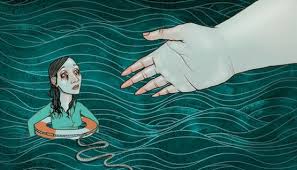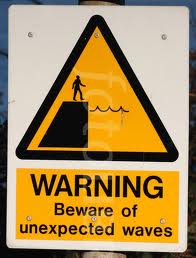Why Stories Matter
This month I found myself, in the midst of reworking a story, wondering why I bothered. There are times when this feeling surfaces in me where I think of the long hours I put into my art, my craft, and wonder if the balance of a story’s existing is worth the effort. Wouldn’t my time be better spent volunteering at a women’s shelter or writing non-fiction articles about issues I’m passionate about? Is my writing fiction just a way of softening the edges of the injustices and suffering I see in the world around me (or in myself), a way of couching dirty realities in pretty language paintings?
For these moments, I have two notecards covered with quotes. I take those cards out and read them when I start feeling like this, like there is just not a story in the world that could possibly matter more than teaching starving people how to grow food. What they remind me of is that stories are, in their own right, a very necessary kind of food—a food without which we cannot live any more than the kind of food we put in our mouths.
Stories aren’t just passive entertainment. We turn to stories to tell us how to make it through those times we don’t think we’re going to make it through. In college I needed to see Scarlett O’Hara and Madame Bovary live through loving the man they couldn’t have (in my case, the man I couldn’t get back). Sometimes I need to watch Holden Caulfield and Beloved wrestle with their versions of despair so I can contextualize mine. And sometimes when a darker emotion has me in its sway, I want a story full of sparkle and sass, a life raft from the shadowy depths of my internal ocean, reminding me there is a surface, after all.

This.
That’s perhaps the most important reason to write—stories are our collective wisdom regarding how to make it through any and everything. There are endless reports of rescue workers in the depths of war zones and the scenes of natural disasters holding frightened children close and telling them stories. Yes, they’re also providing life-saving care, but stories are a part of that care. They help knit together shattered safety. Stories can help us form a context for understanding what’s happened to us.
Stories also help us explore, or discover, who we really are and what is at the root of our struggles. The meaning we ascribe to a story reflects this perfectly. To me, Hamlet isn’t about hesitation—it’s about what happens when we let our intellect overrun our heart. “Being too much in your head” is one of my biggest challenges and Hamlet reminds me of the cost of living there. And that’s why a good story isn’t just a fun read—it’s a journey of self-revelation: how many times have you been reading and thought “I’m totally like that” or “I’m nothing like that” or the ever-popular “Oh crap, I didn’t think I was like that, but really I am”?

A good book will hit you like this–out of nowhere.
I read a book recently about a woman who was in a great marriage…and then an ex-lover showed up. I love my husband, he’s amazing, but I learned a lot about my own longing from that book, and the way I can get trapped in a fantasy world just like that woman did, imbuing past lovers with magical qualities when my husband and I aren’t connecting the way I think we “should.” Danger, Will Robinson! Note to self: watch the gossamer-myth spinning. It distracts from what I need to pay attention to in the present.
And that’s why I have those quotes. When I forget the power of our collective storytelling, my reminding factors poke me and say, “Stories help us live, and make sense of, our lives. Keep writing.”
